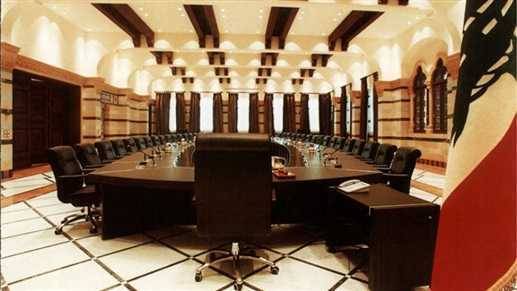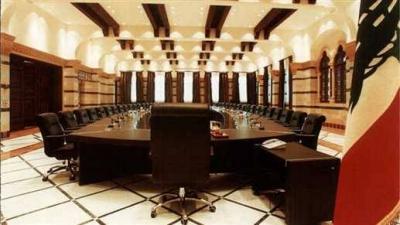Following the non-binding parliamentary consultations, which recorded an atmosphere of "facilitation and easing" on the second day (yesterday), the appointed Prime Minister Najib Mikati is set to convey the results to Baabda today, along with a proposal for what a 90-day government could look like from the date of issuing decrees—if they are issued—until the election of a new president, marking the countdown to the end of President Michel Aoun's term.
The meeting between the appointed Prime Minister and the leader of the "Strong Lebanon" bloc, MP Gibran Bassil, was not free from "rebuke" and "mischief" regarding the appointment and formation. In the manner of "paying favors," Bassil will overlook what he termed the "unconstitutional nature of the appointment" due to the weak Christian representation, implying that, in addition to extortion, the exclusion of Mikati from the government would occur by not naming him.
If Bassil aimed to establish a "conflict of interest" regarding the government formation, awaiting a statement from his bloc on whether to participate or not, this strongly indicates that the process of forming the government will not be lenient regarding issuing decrees or granting confidence; thus, he awaits the "promised formation!" Political sources informed "Al-Liwaa" that President Mikati is expected to visit the President to inform him about the results of his consultations with the parliamentary blocs, and this meeting is anticipated to initiate a series of discussions between them to finalize the government formation. They clarified that the positions issued provide clear evidence that the issue is complex, and there is a need to maintain an overarching sense of optimism, especially since direct and indirect consultations, or those through intermediaries, have not yet seriously commenced.
Additionally, the sources indicated that retaining the current government with changes to names could be a way out of the governmental impasse, but this is not definitive, especially with the proposed idea of rotating ministerial portfolios. They noted that Mikati would devote the coming days to reviewing the ideas and feedback he received from the parliamentary blocs and deputies during the non-binding consultations, to incorporate them into the draft of the ministerial formation he is preparing to present to President Michel Aoun early next week, as officials will be busy with a series of meetings with Arab foreign ministers in the coming days. These meetings are expected to include a review of the outcomes of the movements and discussions in the region, particularly concerning Lebanon and the prospects for the next phase.
The sources anticipated that the essentials of the upcoming ministerial formation, with names and portfolios, would be based on urgent priorities that cannot be postponed, which are: revitalizing the electricity sector in all its aspects, completing negotiations with the International Monetary Fund and implementing the required accompanying measures, continuing negotiations on maritime border demarcation with Israel, and addressing food security.
The sources observed that the withdrawal of fundamental blocs from participating in the government and the apparent reticence of some, as in the case of the "Free Patriotic Movement" bloc, could complicate the formation of a new cabinet due to the resulting objections and hurdles, potentially requiring the caretaker government to remain as is until President Aoun's term ends, or to be replaced by an adjusted formation that involves changing some names and distributing key portfolios.
Furthermore, the sources regarded some demands presented by certain individuals, particularly what was raised by Bassil regarding changing the Governor of the Central Bank, Riad Salameh, as facing numerous obstacles that make it impossible. This is especially true as it requires political consensus among the main political parties first, and the governor is overseeing the negotiations with the IMF, in addition to managing the nation's monetary policy.
Political sources described Bassil's criticism of the Central Bank governor, following the meeting of the "Strong Lebanon" bloc with Mikati, as aimed at extorting the appointed Prime Minister with other demands and covering up Bassil's personal misdeeds and scandals, especially since he is already aware of the impossibility of fulfilling his request. They stated: What the Lebanese have been enduring for some time now—a total collapse of the electricity sector nationwide, the scandal of water shortages affecting most Lebanese, suffering from electricity cuts and incurring enormous daily costs due to Bassil and his close associates managing the ministry for over ten years, and the waste of funds exceeding tens of billions of dollars that went into private pockets—constitutes the most substantial indictment of him and necessitates his referral to the judiciary and prosecution before anything else.
The sources emphasized that the political noise he is creating and the mobilization of Ghada Aoun's judiciary to seek revenge against his adversaries will not change anything regarding the damage he has inflicted through his failed practices and destructive performance against the Lebanese, nor will it exempt him from accountability and responsibility, no matter how long it takes. Visitors to Mikati reported that he commented regarding the first day's consultations that he expressed satisfaction with the atmosphere of discussions with the blocs and deputies, which provided him with a clear picture of the demands and proposals; however, he shows significant reservations regarding his government vision to avoid preempting stages while also expressing satisfaction with many members of the current government. According to visitors, Mikati finds it surprising to hear scenarios circulated in newspapers about his intention to replace specific ministers from the current government and confirms that the clear governmental vision in his mind has not yet been translated into writing.




